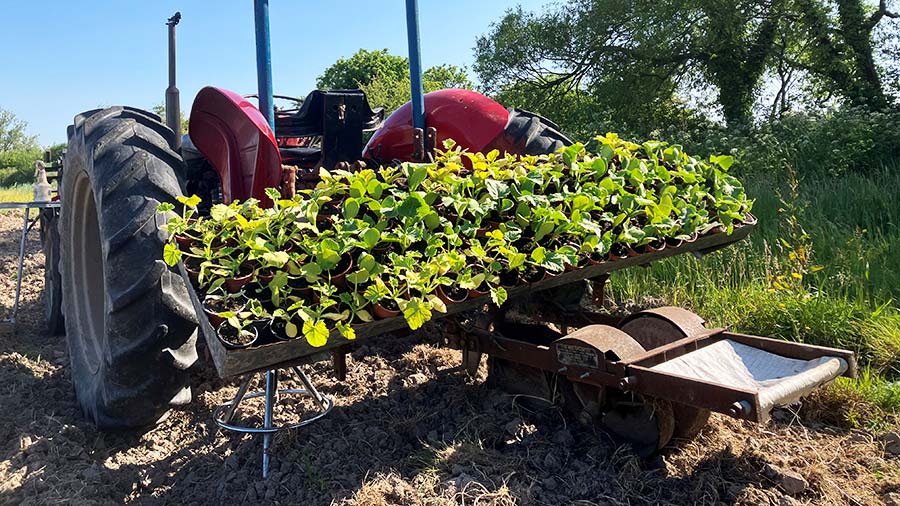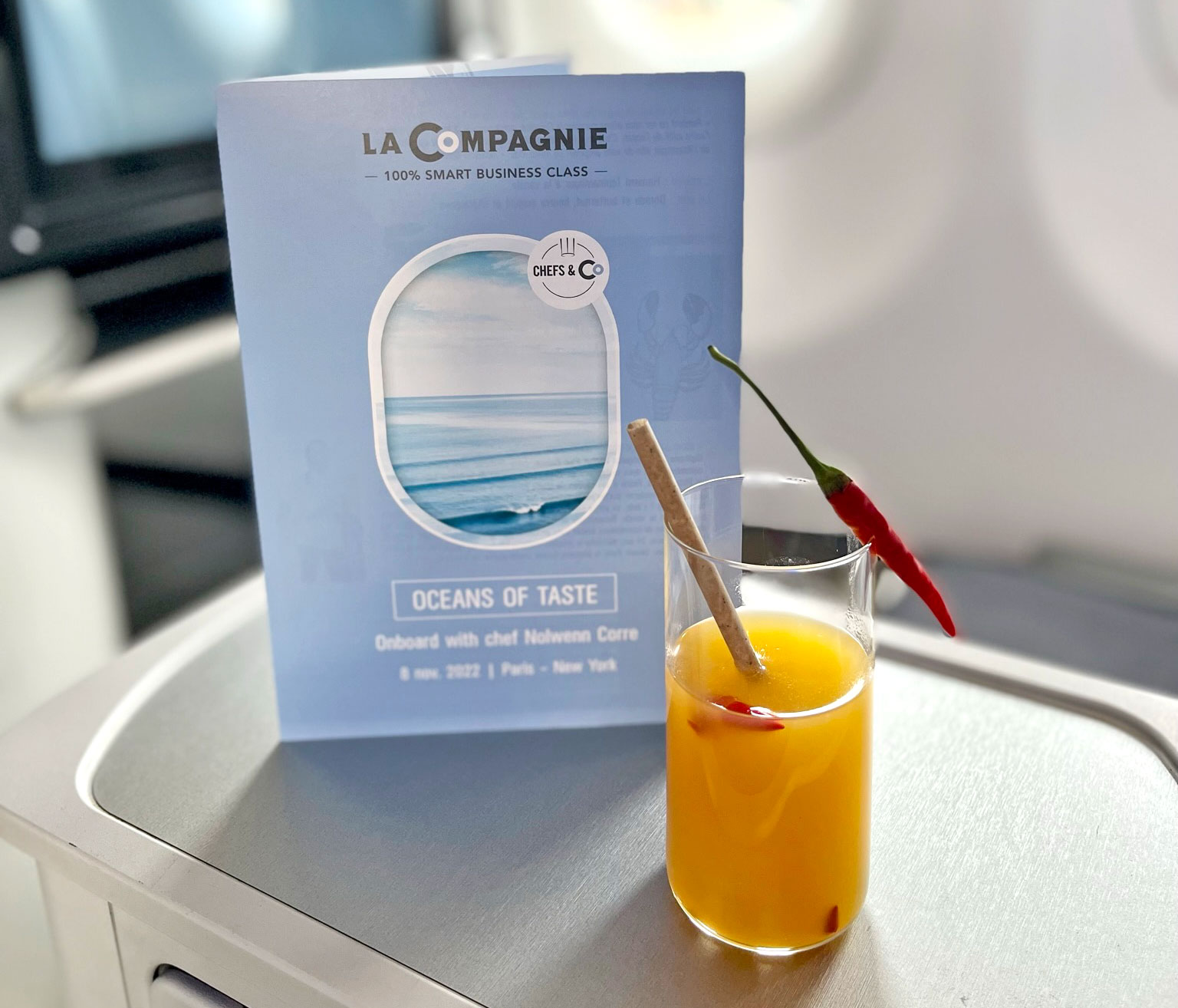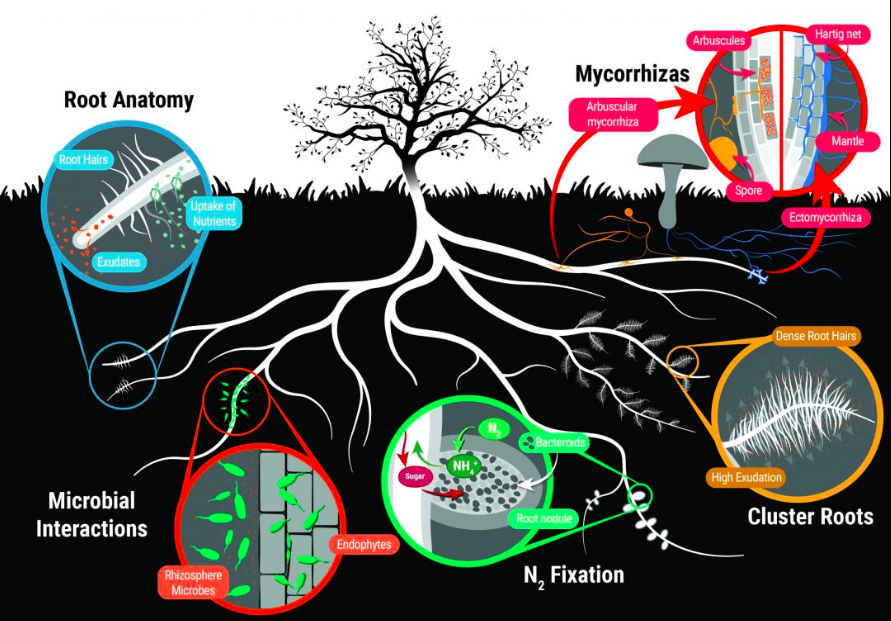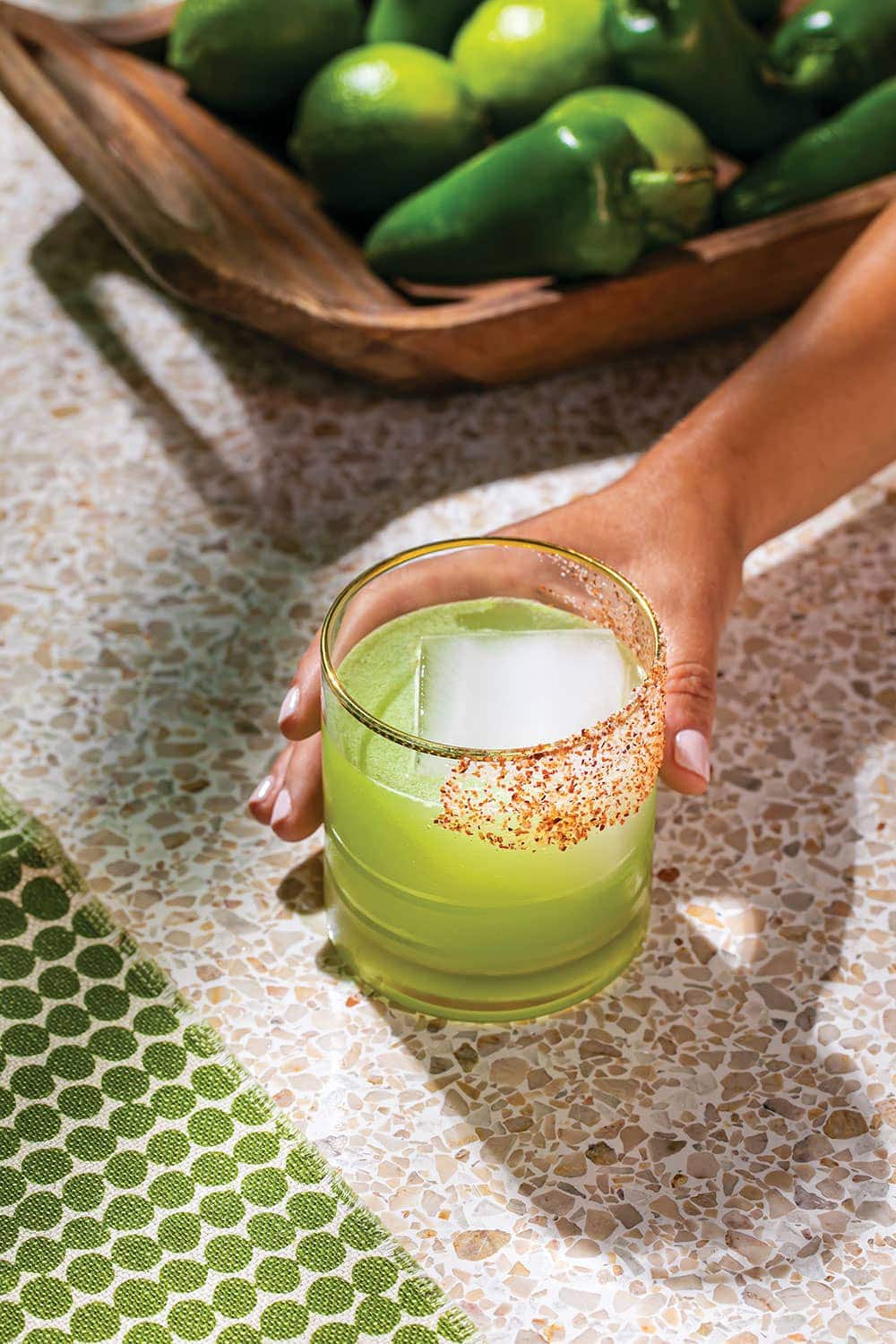[ad_1]
First technology veg farmers Jono Hughes and Holly Tomlinson took the plunge to arrange an natural veg enterprise, with the purpose of supplying regionally produced greens in South Wales and encourage younger folks into the trade.
Eager to base the enterprise often called “Blas Gwent” on the doorstep of a big market potential, the husband and spouse crew bought a 4ha subject a number of miles east of Cardiff in February final 12 months.
Their first harvest noticed them produce an array of crops together with courgettes, peas, squash, broccoli, cabbage, cauliflower, lettuce and beetroot.
See additionally: 5-year farm trial goals to seek out final soil rejuvenator
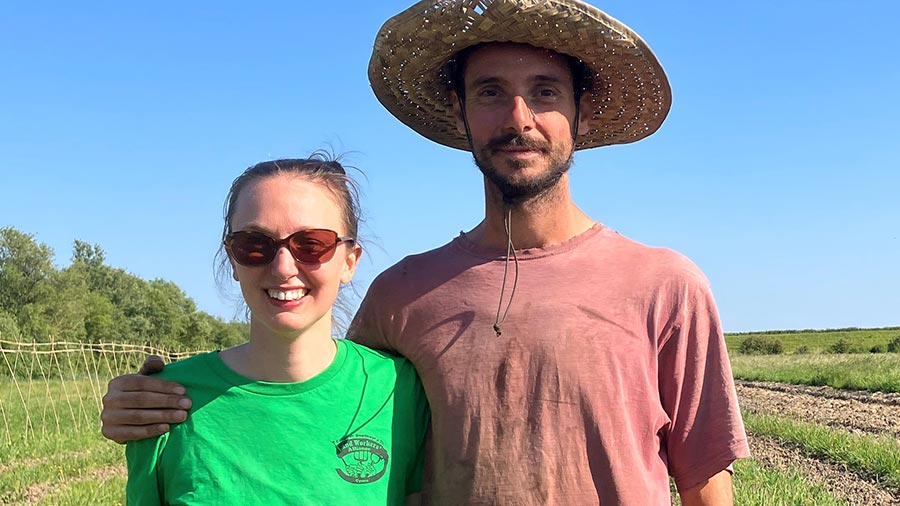
Holy Tomlinson and Jono Hughes © MAG/Emma Gillbard
Nearly all of the crops are bought to native farmers markets, however the couple have additionally been concerned with a Welsh authorities pilot undertaking supplying 1t of courgettes to native major colleges.
The pilot plans to get Welsh veg on to youngsters’s plates, throughout 100 major colleges in South Wales. Blas Gwent is eager to proceed supplying the undertaking, with plans to scale up provide this season.
Bettering soil well being
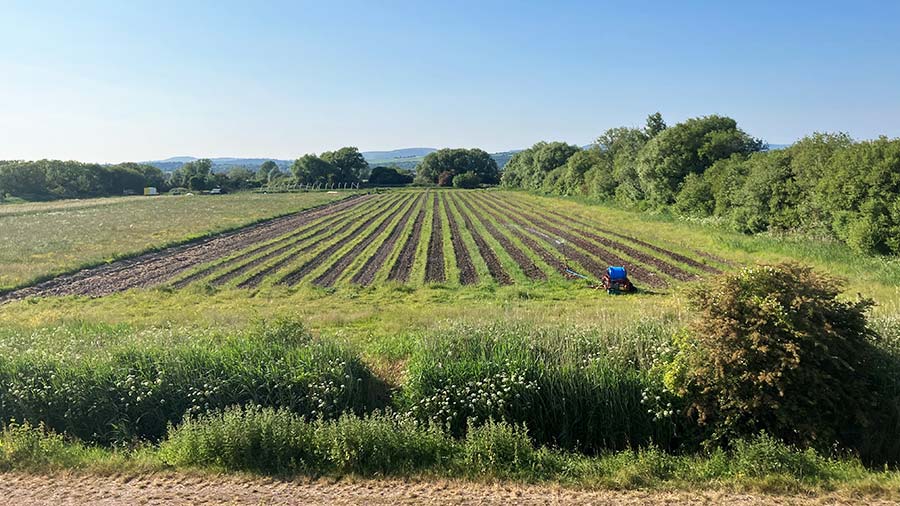
Blas Gwent fields in Cardiff © MAG/Emma Gillbard
Bettering soil well being is a key precedence for the pair, as soil compaction is their largest problem. The land is reclaimed marshland, beforehand used for horses, so deep underlying compaction is problematic.
A canopy crop mixture of black oats, winter rye, triticale, grasses and purple clover to construct fertility helps alleviate the problem, which kinds a part of a 12-year rotation to minimise construct up of pests, weeds and illness.
Moreover, Jono has integrated present everlasting pasture to type pasture wheelings throughout sure blocks of the sector in an effort to minimise compaction.
He says the precept may very well be scaled up in standard arable fields to eradicate compaction and promote biodiversity.
“The grass strips run via the sector like tramlines and are the precise width for our Massey 135 tractor. The grass helps the load of the tractor to minimise compaction when cultivating, planting or weeding,” he says.
“We additionally get quite a lot of foot visitors throughout the sector, when checking crops and hand-weeding, so the pasture wheelings present a easy pathway to simply entry crops.
“Not solely this, however the grass strips act as a beetle financial institution to offer habitat for useful bugs. That is vital for a wholesome ecosystem and retains pest numbers low,” he continues.
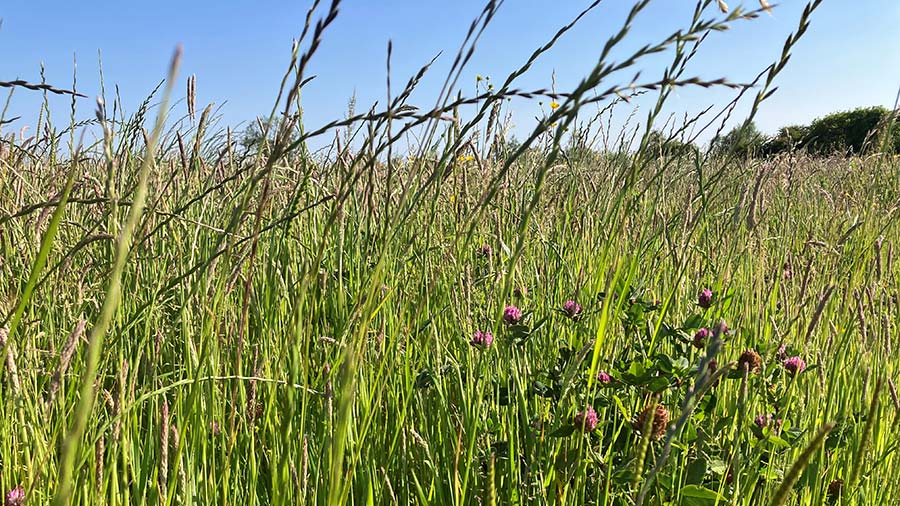
Blas Gwent cowl crops © MAG/Emma Gillbard
Planting
Crops are initially grown in a polytunnel over the autumn earlier than planting into the primary subject blocks through the spring.
This method, often called a direct seed-bed naked root transplant, is used throughout all brassica crop varieties, leeks, onions, celery, lettuce and tomatoes.
Moist climate all through March and April delayed planting this spring, however by bettering soil well being, Jono and Holly hope to mitigate climate extremes.
The cropping rotation strikes from left to proper throughout the sector in 5 blocks. First, the quilt crops are mown and integrated with a spading machine.
“That is just like a rotavator, however we discover it advantages soil construction with much less smearing results. We then make a cross with the ability harrow earlier than planting with a transplanter and inter-row cultivator.”
“Specializing in micronutrients is important to selling pure ecosystems and liberates vitamins akin to potassium nitrogen and phosphate from heavy clay soils.
“For this reason we’re making use of 2kg/ha of sodium molybdenite to spice up plant well being because the soil is at present missing in molybdenum, ” he says.
Throughout the rising season, crops are inter-row hoed about 3 times with the Massey 135, but in addition with a hand-crafted, handheld energy hoe.
A petroleum powered irrigation pump provides 1in of water to crops each 5 days.
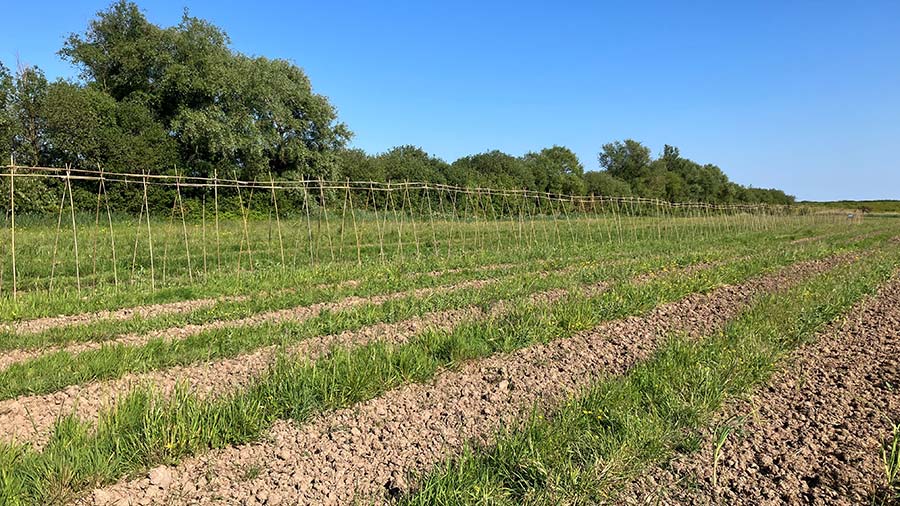
Pasture wheelings © MAG/Emma Gillbard
Subsequent steps
Going ahead, the pair hope to encourage younger folks into the trade and introduce them to the world of horticulture.
The pair are at present using a younger apprentice from the suburbs of Cardiff and hope to develop this attain by growing a small customer centre for college visits and farming join programmes.
[ad_2]
Source link
